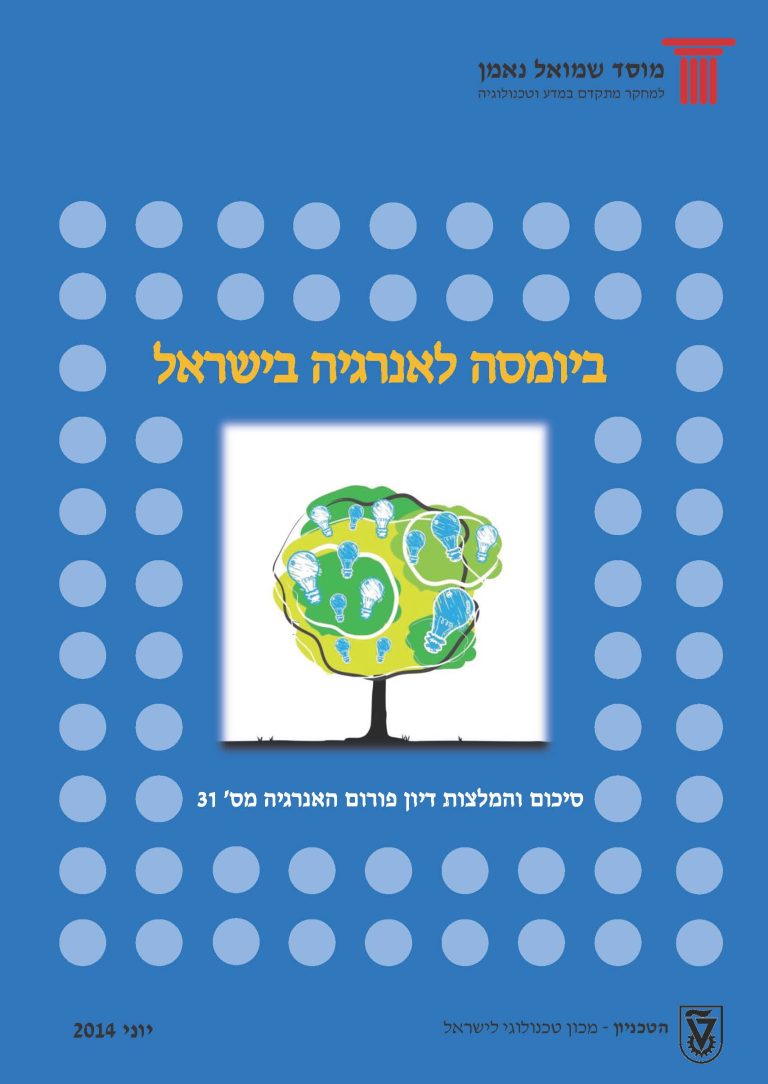ביומסה הינו אחד המקורות לאנרגיה מתחדשת העומדים לרשות המשק. בניגוד לשריפת דלקים מאובנים (פוסיליים), אין שריפת הביומסה, באופן ישיר או עקיף, מייצרת עודף פחמן דו-חמצני (פד”ח) ואינה משנה את המאזן האקולוגי של כדור הארץ, שכן בעצם גידולה הטמיעה בפוטוסינתזה כמות זהה של פד”ח לזו שיצרה בשריפתה. לפי נתוני ה- U.S. Energy Information Administration, בעולם כולו מספקת הביומסה כ-4% מכלל האנרגיה, לצד 3% ממקורות הידרואלקטריים ו-6% ממקורות גרעיניים, בעוד 85% מסופקים מדלקים מאובנים – פחם, נפט וגז. כ-2% בלבד מסופקים ע”י שאר מקורות האנרגיה המתחדשת – שמש ורוח.
מקורות שונים לביומסה עומדים לרשותנו בישראל, בעיקר פסולת חקלאית ועירונית ובמידת מה גם פסולת תעשייתית: פסולת צמחית – גזם, פסולת פלסטיק, פרש ופגרים של בע”ח, פסולת עירונית אורגנית רקבובית ובוצות שפכים. בניצול הביומסה לאנרגיה ניתן פתרון לשתי בעיות גם יחד: גם נחסכת אנרגיה ראשונית וגם מסולק מפגע סביבתי.
הדרך הנפוצה ביותר לניצול ביומסה לאנרגיה הוא שריפה ישירה, כמובן באופן מבוקר, במתקנים תעשייתיים הדורשים חום או לצורך ייצור חשמל. דרך אחרת היא הפיכת הביומסה לביוגז בתהליכי עיכול, גסיפיקציה, פירוליזה וכדומה. הביוגז ניתן לניצול בדרכים שונות. ניתן לאגור ולשרוף אותו בתהליך נקי ומבוקר יותר מאשר בשריפה ישירה של הביומסה. לחילופין, ניתן לייצר ממנו ביו-דלקים להחלפת הדלקים הקונבנציונאליים.
השימוש בביומסה להפקת חשמל, הוכרה ע”י הרשות לשירותים ציבוריים חשמל כמקור אנרגיה מתחדשת ונקבעו תעריפים לעידוד השימוש בה. מבחינת השימוש לייצור חשמל, יש יתרון לביומסה על פני האלטרנטיבות של שמש ורוח בהיותה מקור אנרגיה רציף בדומה לפחם. למרות זאת, הנושא אינו מצליח להתרומם, אם כי מבחינה משקית יש תועלות גם למשק החשמל וגם למשק הפסולת ותועלות חיצוניות אחרות. ישראל נמצאת בפיגור רב אחרי מדינותOECD בניצול ביומסה, במידה רבה עקב הרגולציה שאינה מעודדת ואף מעכבת את יישומה. דו”ח של ה-OECD שיצא במרץ 2014 שם את ישראל במקום האחרון מבחינת הרגולציה. הנושא נופל בין הכיסאות של רשויות ומשרדי הממשלה. דרושה ראייה מערכתית רחבה שתיקח בחשבון את כלל ההשלכות.












